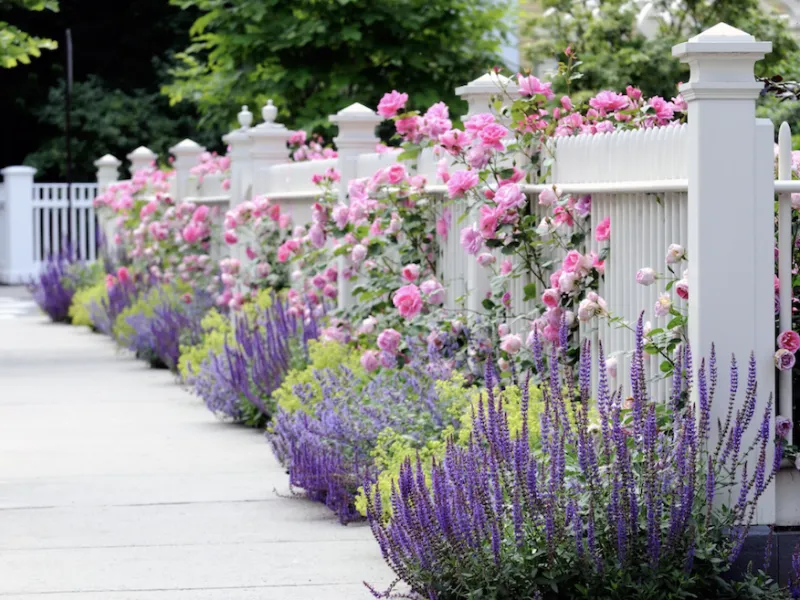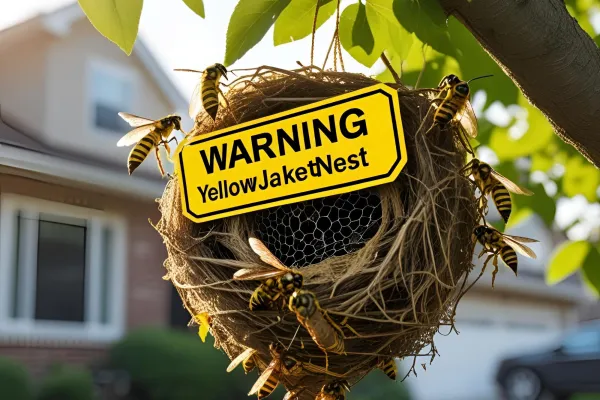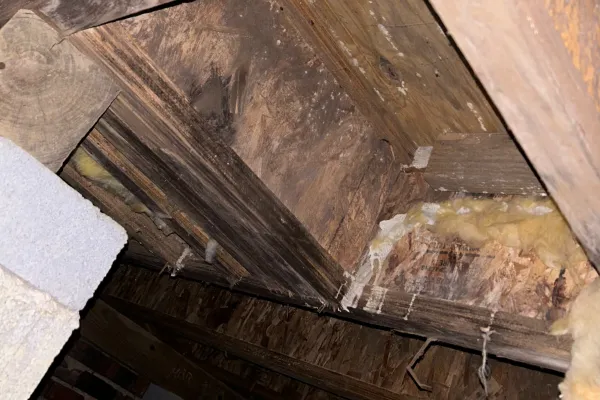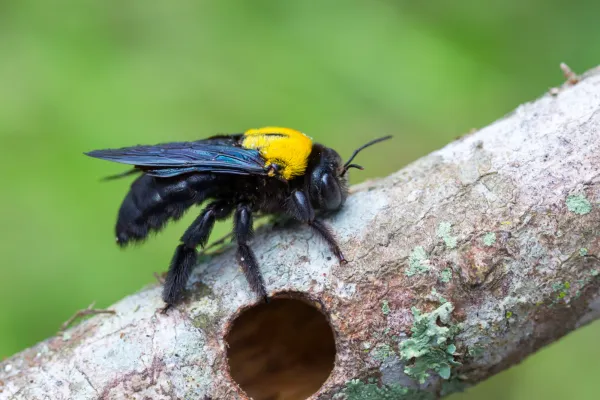An Exterminator’s Guide to Pest-Proofing Your Summer Garden

Summer is here, and it’s time to get outdoors, work in your garden, and quite literally, enjoy the fruits of your labor. At Palmetto Exterminators, we know that gardening is one of the most pleasant and rewarding pastimes here in South Carolina, but we also know that things can turn south rather quickly if summer pests begin to overtake your plants.
Did you know that there are over 900 different insect species? This constitutes nearly 80% of the entire world’s species and odds are many of them are eyeing your summer garden along with other, larger garden pests such as rabbits and deer. You can use our pest library to learn about a few native insect species that may be attracted to your garden and may require pest control treatment. Use our guide below to help you pest-proof your summer garden and ensure you and your family are the only ones nibbling on your harvest.
Choose the Right Location
Although gardens planted in heavily treed areas can be aesthetically pleasing, it’s not the best idea for controlling pests. Our exterminators have seen insects that live in those heavily treed areas will certainly be attracted to your garden. These areas also restrict wind and airflow from reaching your garden, which can help deter those pesky plant eaters.
Plant your garden in a more open area where the wind can easily reach it. This simple tactic also helps to dry up any excess moisture on the leaves and stems of plants, which could potentially attract insects.
Finally, consider planting your garden in raised beds, where larger garden pests such as rabbits and other small animals cannot reach.
Grow Pest-Deterrent Plants
Our pest control experts also recommend warding off garden pests by incorporating pest-deterrent herbs, flowers, shrubs, and vegetables into your garden, an aesthetic pest control treatment option.
Pest-Deterrent Herbs:
There is a large variety of pest-deterrent herbs you can integrate into your garden to help divert pests, including:
Basil
The scent of basil is naturally pest-repelling. This herb repels insects, including beetles, flies, and mosquitos.
Helpful Hint: Regularly touching the leaves of your basil plant will kick start its oil production and lead to an increased release of its scent.
Sage
The herbal aroma of sage, along with its tough and fuzzy texture, attracts beneficial insects such as bees while repelling unwanted pests such as snails, moths, beetles, and flies.
Rosemary
Rosemary also has a pungent scent that repels pests. Rosemary is well known for deterring moths and thrives in warm, dry weather. Rosemary grows well in containers and is easy to place in areas throughout your garden.
Pest-Deterrent Flowers:
Some flowers even attract beneficial garden bugs such as ladybugs and praying mantises which act as pest-deterrents. Consider adding the following flowers to your garden to dissuade pests:
Marigolds
The roots of marigolds actually produce toxins that kill harmful nematodes that may be feeding on the roots of your garden.
Helpful Hint: French Marigolds are proven most effective at repelling garden pests.
Petunias
With their scent, sticky hairs, and vibrant colors, petunias make a great pest-repellent plant to include in your summer garden. Petunias attract beneficial garden bugs such as ladybugs, lacewings, and hoverflies which eat pests like harmful mites and aphids.
Chrysanthemums
Mums contain Pyrethrin, a neurotoxin that kills insects but is safe for animals. These flowers help to repel ticks, fleas, ants, beetles, and other garden intruders.
Pest-Deterrent Shrubs:
Consider adding some pest-deterrent shrubbing near your garden. Some shrubs to choose from include:
Lemongrass
Lemongrass contains a strong oil that repels pests. Lemongrass is effective at reducing the number of mosquitoes and flies hanging around your summer garden.
Lavender
You can’t miss the scent of lavender. And neither can mosquitoes, moths and flies. Lavender is a great natural repellent against these flying insects.
Helpful Hint: Regularly gently rub your lavender plants to release their oil.
Pest-Resistant Vegetables
Certain garden vegetables are also pest-resistant. Consider adding the following vegetables throughout your garden to reduce pests:
Garlic, Onions, and Leeks
The strong scent of garlic, onions, and leeks naturally repels many garden pests, including aphids, mites, caterpillars, armyworms, cutworms, beetles, slugs, mosquitoes, and more. Additionally, these plants produce a natural fungicide in the soil. Nearby plants absorb this fungicide and protects them from fungal infections.
Radishes
Rather than a chemical scent, radishes form physical barriers that trap insects, making them easier to eliminate. Consider planting radishes a few feet apart throughout your garden bed.
Rhubarb
Rhubarb contains oxalic acid in its leaves, which helps to repel harmful aphids and other leaf-eating insects.
Regularly Remove Weeds and Debris
Weeds, fallen trees, and leaves are the perfect hiding place and breeding ground for garden pests.
Weeds also compete with your plants for water, sunlight, and nutrients. At the first sign of weeds, be sure to remove them. Without the appropriate amount of water, sunlight, and nutrients, your plants will be more susceptible to garden pests.
Inspect Your Plants Regularly
One of the easiest and most simple things you can do to prevent pests from overtaking your garden is to regularly inspect your plants for signs of infestations. Some signs to watch out for include:
- Holes in leaves
- Chew marks on leaves
- Leaves curling up or falling off
- An increase in ladybug sightings
- Trails of slime
- Snail shells
- Stem damage near the soil line
- Yellow-spotted leaves
Use Natural Pest Control Methods
If you have begun to see some of these signs of a pest infestation, our certified exterminators recommend using some natural pest control treatment options. Consider trying out these natural pest control methods if you’re not quite ready for professional pest control services:
Neem Oil
Mix one gallon of water with 4 teaspoons of neem oil or the amount recommended by the manufacturer, and use a handheld sprayer to spray over plants.
One benefit of using neem oil is that it kills insects at all life stages, including eggs, larvae, and adults.
Baking Soda
Mix 1 teaspoon of baking soda, 1/3 cup of olive oil or cooking oil, and 1 cup of water. Spray over vegetables or flowers to kill harmful garden pests.
Keep Your Garden Pest-Free This Summer with Local Pest Control Services
Enjoying your garden is one of the best parts of summer. Without proper pest control to combat pesky garden intruders, your garden can quickly become more of a hassle than a haven. By choosing the right location, incorporating pest-deterring plants, keeping your garden tidy, and using natural pest control methods, you can fight back against the barrage of bugs trying to treat themselves to your sanctuary.
As always, though, it’s important to know your options. If you find yourself in need of a stronger method for your backyard garden, contact us for expert pest control treatment. At Palmetto Exterminators, we specialize in pest control services and have over 80 years of experience handling pests in South Carolina and are more than happy to help you reclaim your garden.


